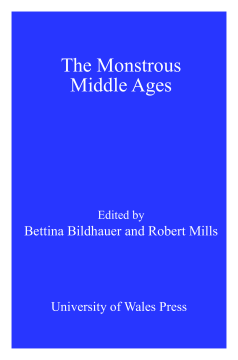
Additional Information
Book Details
Abstract
The figure of the monster in medieval culture functions as a vehicle for a range of intellectual and spiritual inquiries, from questions of language and representation to issues of moral, theological and cultural value. Monsters embody cultural tensions that go far beyond the idea of the monster as simply an unintelligible and abject other. This text looks at both the representation of literal monsters and the consumption and exploitation of monstrous metaphors in a wide variety of high and late-medieval cultural productions, from travel writing and mystical texts, to sermons, manuscript illuminations and maps. Individual essays explore the ways in which monstrosity shaped the construction of gendered and racial identities, religious symbolism and social prejudice in the Middle Ages. Reading the Middle Ages through its monsters provides an opportunity to view medieval culture from fresh perspectives. It should be of interest in the concept of monstrosity and its significance for medieval cultural production.
Table of Contents
| Section Title | Page | Action | Price |
|---|---|---|---|
| Cover | Cover | ||
| Title Page\r | iii | ||
| Copyright Page\r | iv | ||
| Contents | v | ||
| List of Illustrations | vii | ||
| Acknowledgements | ix | ||
| Notes on Contributors | xi | ||
| Abbreviations | xiv | ||
| 1. Introduction: Conceptualizing the Monstrous | 1 | ||
| 2. Jesus as Monster\r | 28 | ||
| 3. Monstrous Masculinities in Julian of Norwich’s A Revelation of Love and The Book of Margery Kempe | 55 | ||
| 4. Blood, Jews and Monsters in Medieval Culture | 75 | ||
| 5. The Other Close at Hand: Gerald of Wales and the ‘Marvels of the West’ | 97 | ||
| 6. Idols and Simulacra: Paganity, Hybridity and Representation in M\randeville’s Travels | 113 | ||
| 7. Demonizing the Night in Medieval Europe: A T\remporal Monstrosity? | 134 | ||
| 8. Apocalyptic Monsters: Animal Inspirations for the Iconography of Medieval North European Devourers\r | 155 | ||
| 9. Hell on Earth: Encountering Devils in the Medieval Landscape | 177 | ||
| 10. Encountering the Monstrous: Saints and Dragons in Medieval Thou\rght | 196 | ||
| Further Reading | 219 | ||
| Index | 227 |
